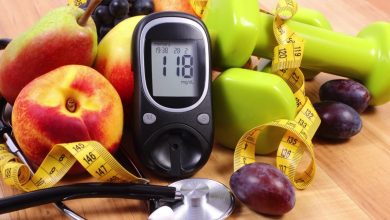10 Healthy Lifestyle Tips Every Busy Professional Should Know

In today’s fast-paced world, professionals are constantly juggling tight deadlines, demanding workloads, and personal responsibilities. With packed schedules and long hours, maintaining a healthy lifestyle often takes a back seat. However, the truth is that good health is the foundation for sustained productivity, focus, and success. Without it, even the most talented professionals can experience burnout, fatigue, and declining performance.
Healthy Lifestyle:
In a fast-paced world filled with endless distractions, responsibilities, and deadlines, maintaining a healthy lifestyle has become more than just a trend — it’s a necessity. Our physical, mental, and emotional health are deeply intertwined, and the way we live directly influences our overall well-being. Living a healthy lifestyle doesn’t just mean eating salads or going to the gym; it’s about creating balance — nurturing the body, mind, and soul to achieve harmony and vitality.
1. Prioritize Quality Sleep
Sleep is not a luxury — it’s a necessity. Unfortunately, many professionals sacrifice rest to meet deadlines or get ahead at work, unaware that poor sleep directly impacts their productivity and decision-making abilities.
Why sleep matters:
According to the Centers for Disease Control and Prevention (CDC), adults need between 7 to 9 hours of quality sleep per night. Lack of sleep can lead to irritability, weight gain, impaired memory, and a weakened immune system.
Practical tips:
- Set a consistent bedtime and wake-up schedule — even on weekends.
- Create a relaxing pre-sleep routine (limit screens, dim lights, and avoid caffeine late in the day).
- Keep your bedroom cool, dark, and quiet.
- Use a sleep-tracking app to monitor patterns and identify areas for improvement.
When you prioritize sleep, you’ll notice enhanced focus, creativity, and mood — all essential qualities for a thriving professional life.
2. Stay Hydrated Throughout the Day
Hydration is one of the simplest yet most overlooked health habits among busy professionals. Dehydration can cause headaches, fatigue, and reduced concentration — things no one wants during a long workday or back-to-back meetings.
The science behind hydration:
Your body is made up of about 60% water, and even mild dehydration can affect cognitive function and energy levels.
How to stay hydrated:
- Keep a refillable water bottle at your desk.
- Set phone or smartwatch reminders to drink water every hour.
- Limit sugary sodas and energy drinks — opt for water, herbal teas, or infused fruit water instead.
- Eat water-rich foods like cucumbers, oranges, and lettuce.
Pro tip:
If you drink coffee regularly, remember that caffeine is mildly dehydrating. For every cup of coffee, add one glass of water to balance your intake.
3. Plan Nutritious Meals Ahead
Many professionals rely on fast food or vending machine snacks due to time constraints. However, these high-fat, high-sugar options lead to energy crashes and long-term health issues.
Healthy eating doesn’t have to be complicated. Meal prepping on weekends or the night before can save you time and ensure you make smart choices.
Tips for better nutrition:
- Prepare balanced meals with lean proteins, complex carbs, and healthy fats.
- Keep healthy snacks like nuts, fruits, and yogurt at work.
- Choose grilled or baked options over fried ones when eating out.
- Avoid skipping meals — it can lead to overeating later.
Quick meal prep ideas:
- Overnight oats for breakfast.
- Grilled chicken salad for lunch.
- Stir-fried veggies with brown rice for dinner.
By planning ahead, you’ll avoid unhealthy temptations and maintain steady energy throughout your day.
4. Incorporate Physical Activity Into Your Routine
Exercise is often the first thing professionals skip when schedules get tight — but it’s one of the best investments you can make in yourself. Regular physical activity boosts mood, reduces stress, and enhances focus.
The benefits of regular exercise:
- Increases energy and stamina.
- Enhances cognitive function and creativity.
- Strengthens muscles and supports posture (especially if you sit all day).
- Reduces the risk of chronic diseases such as diabetes, heart disease, and hypertension.
How to fit exercise into a busy schedule:
- Start small: Even 15–20 minutes of brisk walking or stretching makes a difference.
- Use micro-breaks: Do squats or stretches during short work breaks.
- Try active commuting: Walk or cycle to work if possible.
- Use technology: Fitness apps and smartwatches can help track progress and keep you accountable.
Remember, consistency is key. A short daily workout is far more beneficial than an intense session once a week.
5. Manage Stress Effectively
High stress levels are part of modern professional life, but chronic stress can lead to burnout, anxiety, and health problems. Learning how to manage stress effectively is essential for long-term wellbeing.
Practical stress management techniques:
- Practice mindfulness or meditation for at least 10 minutes daily. Apps like Calm or Headspace make it easy.
- Take short mental breaks throughout the day to recharge.
- Connect with others Talking to colleagues, friends, or mentors can help you decompress.
- Engage in hobbies you enjoy outside of work — reading, painting, gardening, or music.
Scientific insight:
Mindfulness-based stress reduction (MBSR) has been shown in multiple studies to reduce anxiety, improve focus, and enhance emotional resilience — vital skills for busy professionals.
6. Maintain a Healthy Work-Life Balance
In a digital age where we’re constantly connected, the line between work and personal life often blurs. However, maintaining boundaries is crucial for both mental and physical health.
Tips to achieve balance:
- Set clear work hours and stick to them as much as possible.
- Avoid checking work emails late at night or on weekends.
- Schedule personal time for family, relaxation, and self-care.
- Take regular vacations or breaks — time away from work boosts creativity and motivation.
Remember:
You can’t pour from an empty cup. Taking time to recharge isn’t lazy — it’s strategic. A balanced life helps you return to work more energized and productive.
7. Practice Mindful Eating
Many professionals eat while working at their desks, scrolling through phones, or during meetings. This habit can lead to overeating and poor digestion.
What is mindful eating?
It means paying attention to the taste, texture, and aroma of your food — eating slowly and without distractions.
Benefits:
- Improves digestion.
- Helps control portion sizes.
- Increases satisfaction and reduces emotional eating.
How to practice it:
- Eat without multitasking — no screens or emails.
- Chew slowly and savor every bite.
- Stop eating when you feel comfortably full.
Mindful eating reconnects you with your body’s natural hunger signals, leading to healthier long-term habits.
8. Take Regular Breaks from Screens
With remote work and digital meetings, professionals now spend more hours in front of screens than ever before. Prolonged screen time can cause eye strain, headaches, neck pain, and mental fatigue.
How to reduce screen fatigue:
- Follow the 20-20-20 rule: Every 20 minutes, look at something 20 feet away for 20 seconds.
- Adjust screen brightness and maintain proper posture.
- Take walking breaks between meetings.
- Schedule “screen-free” times — especially before bed.
Bonus tip:
Use blue light–blocking glasses if you work long hours on digital devices. This helps reduce eye discomfort and improve sleep quality.
9. Build a Supportive Social Network
Strong social connections are a cornerstone of emotional wellbeing. Even for busy professionals, maintaining relationships with colleagues, friends, and family is essential.
Why social connection matters:
Research consistently shows that individuals with strong social ties experience lower levels of stress, better immune system, and longer lifespans.
Ways to nurture connections:
- Make time for weekly catch-ups — even short ones.
- Join professional groups or clubs with shared interests.
- Be kind and supportive to colleagues — small gestures matter.
- Don’t hesitate to seek support if you’re overwhelmed.
Surrounding yourself with positive, like-minded people can uplift your mood, provide motivation, and make challenges easier to face.
10. Keep Learning and Growing
Health isn’t just physical — it’s also mental and emotional. Lifelong learning keeps your brain sharp and your confidence high.
Mental growth benefits include:
- Enhanced creativity and problem-solving skills.
- Improved resilience against stress and burnout.
- A sense of purpose and motivation.
Ways to keep learning:
- Listen to educational podcasts during your commute.
- Read books or take online courses in areas of interest.
- Attend workshops or seminars to expand your knowledge.
- Set small learning goals — even 15 minutes of reading a day adds up.
When your mind is engaged and growing, you’ll feel more fulfilled — both personally and professionally.
Final Thoughts:
A healthy lifestyle isn’t about perfection — it’s about progress. Every positive choice you make, no matter how small, contributes to your overall wellbeing. By following these 10 healthy lifestyle tips, you’ll not only enhance your physical and mental health but also unlock greater productivity, focus, and happiness in your professional journey.
Remember, success isn’t just about how much you achieve — it’s about how well you live while achieving it.




